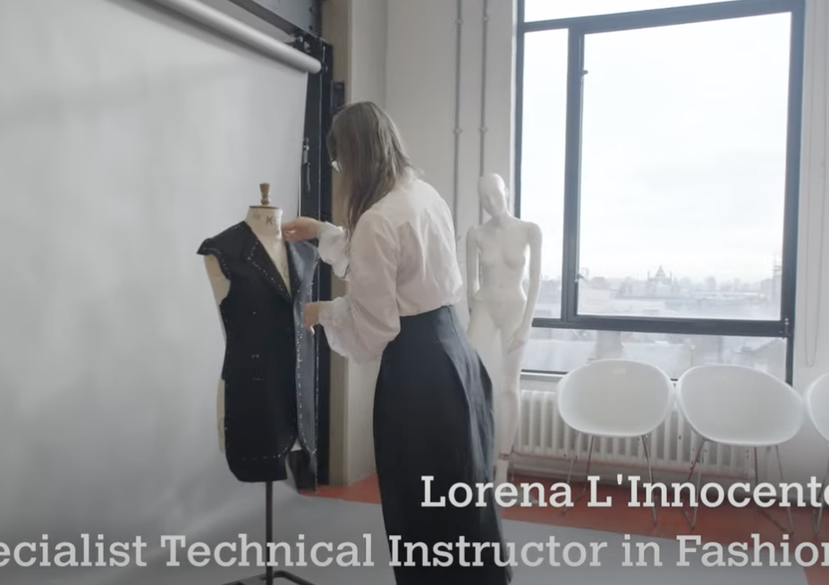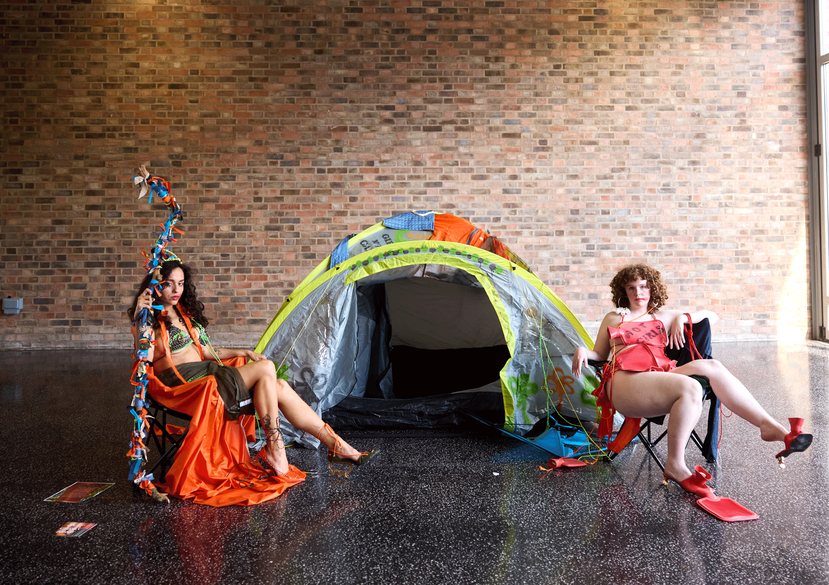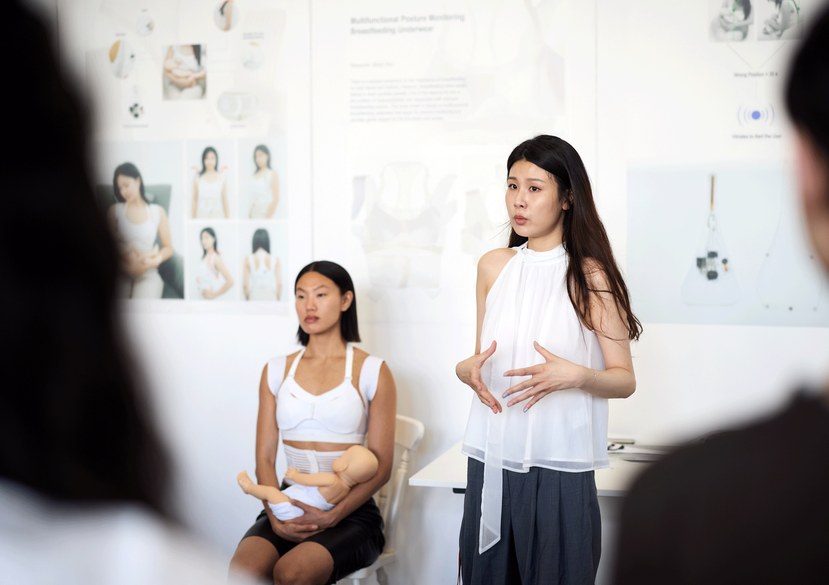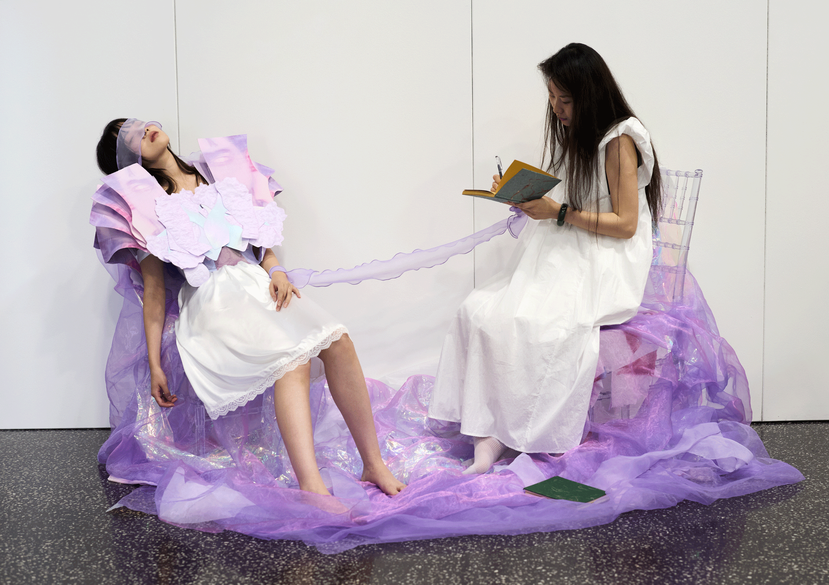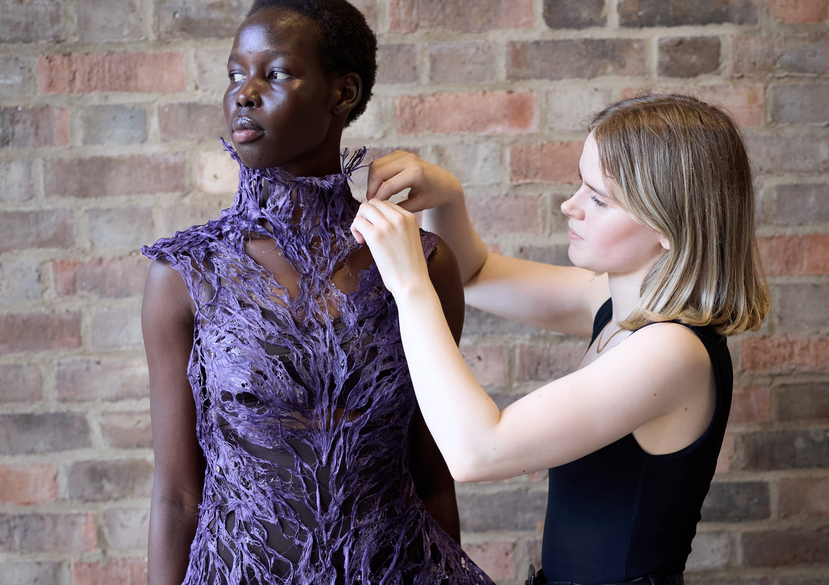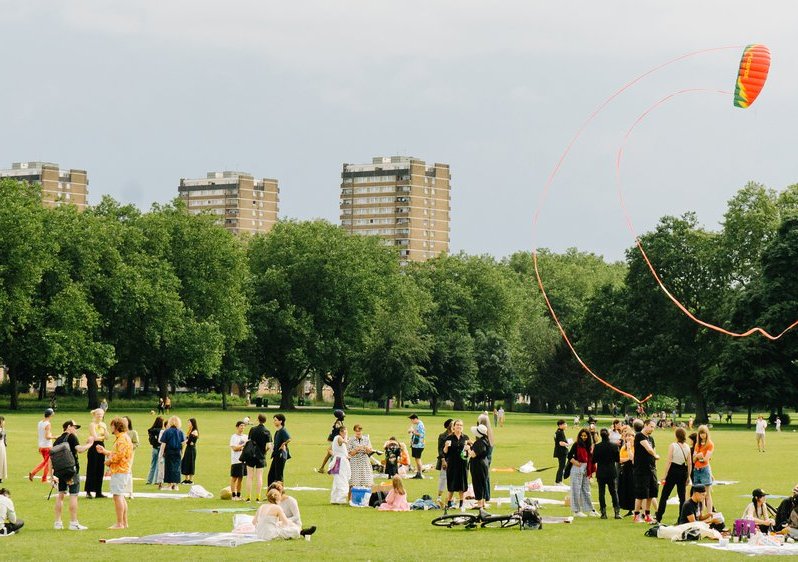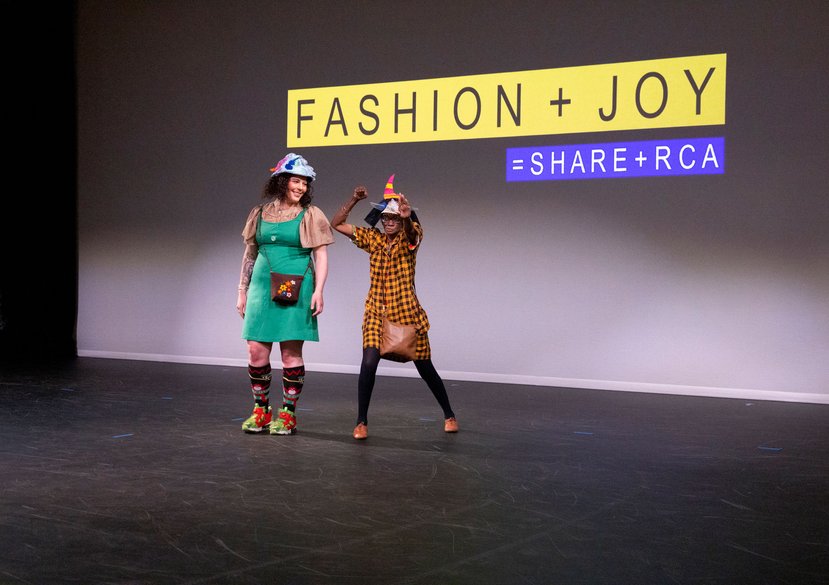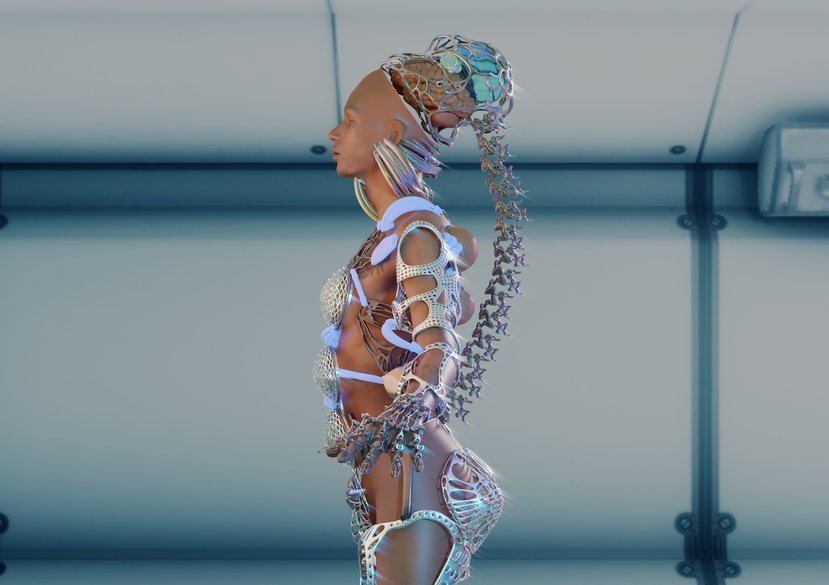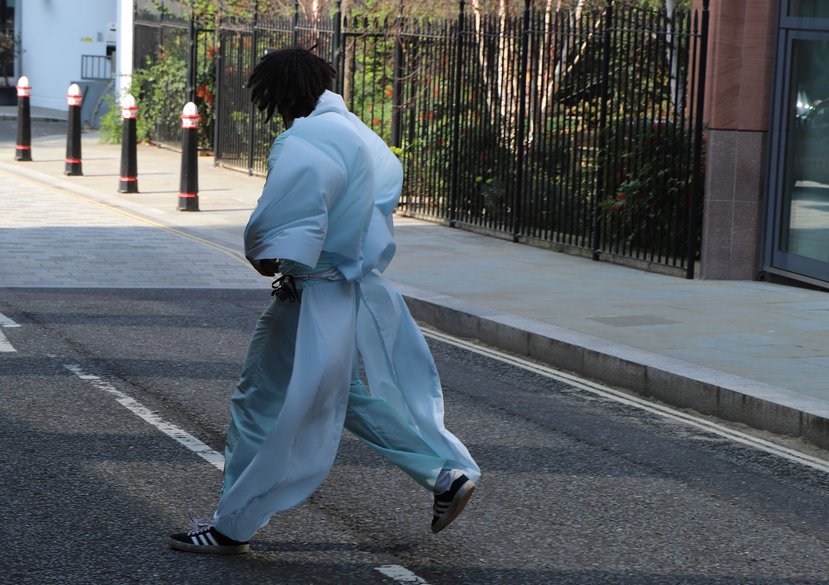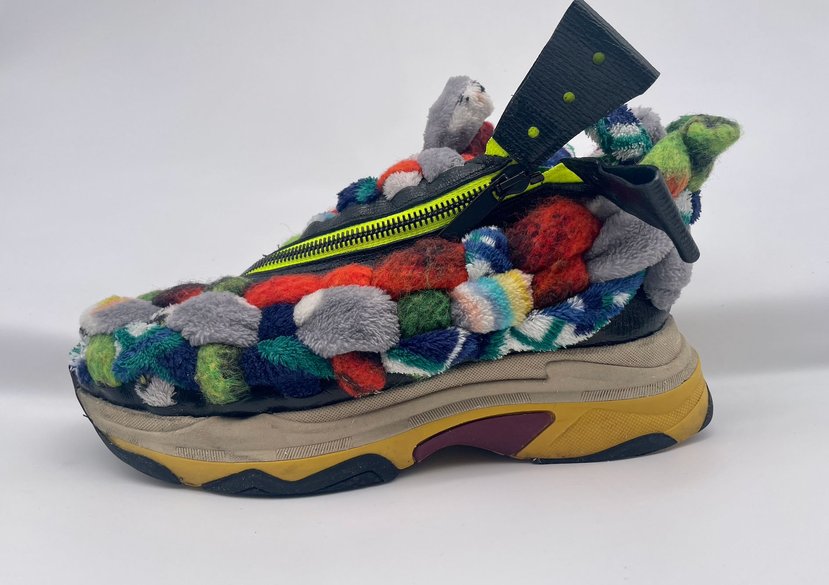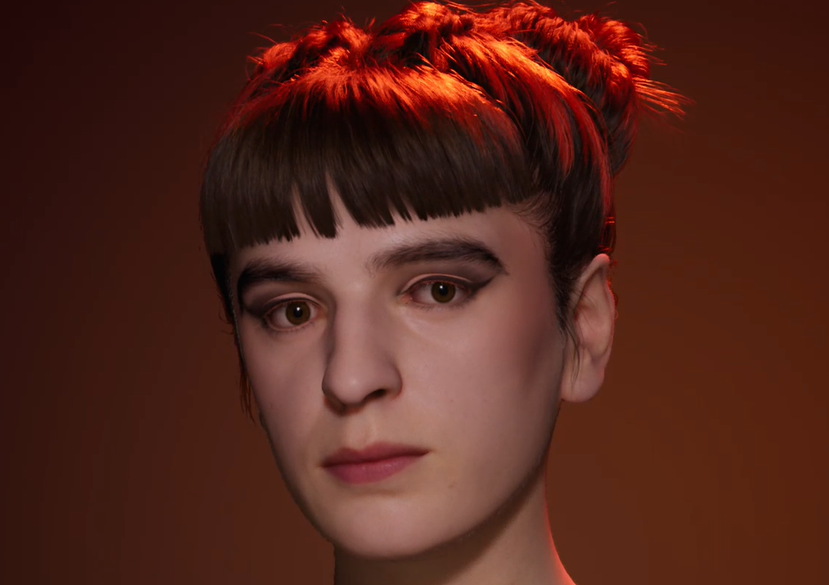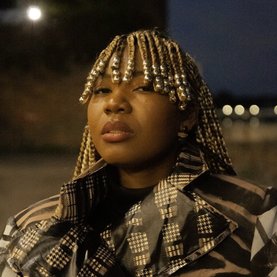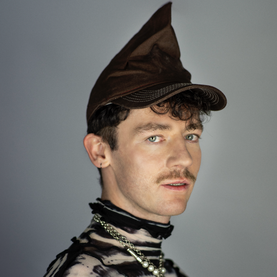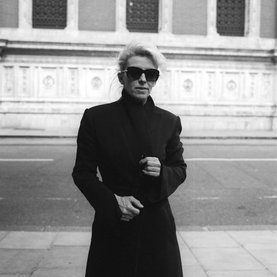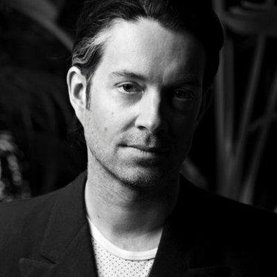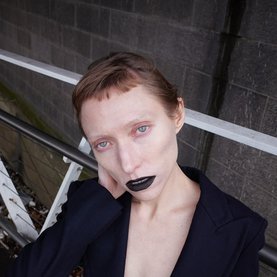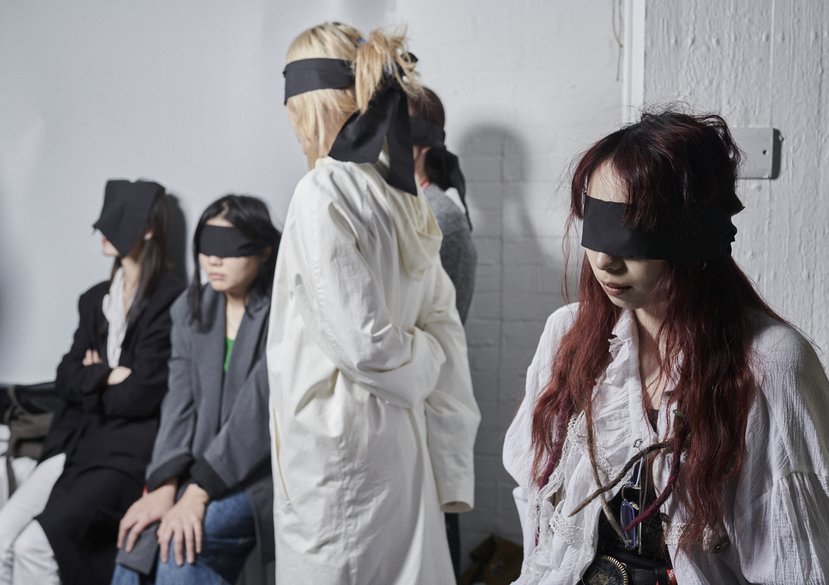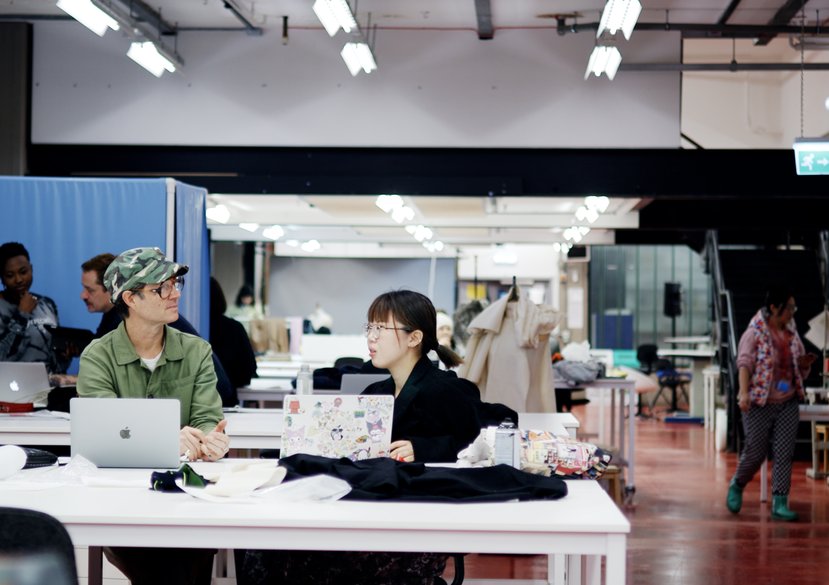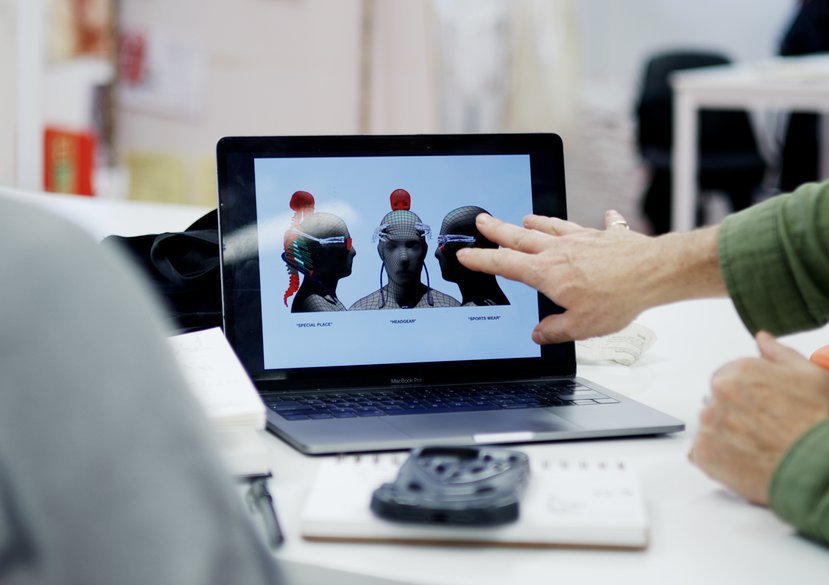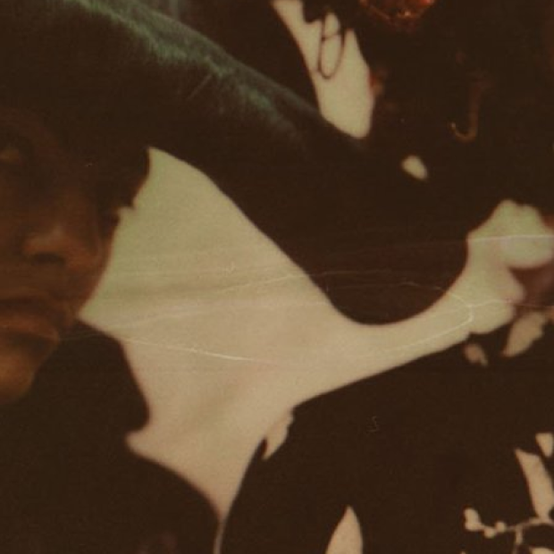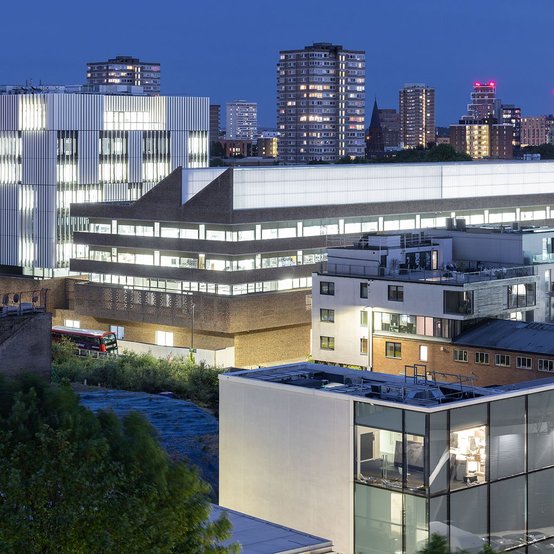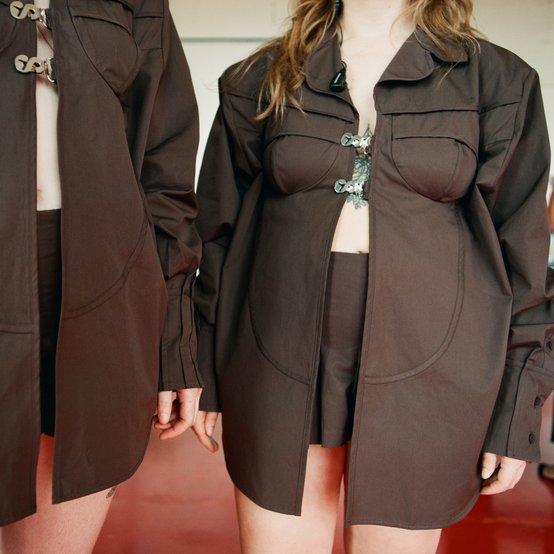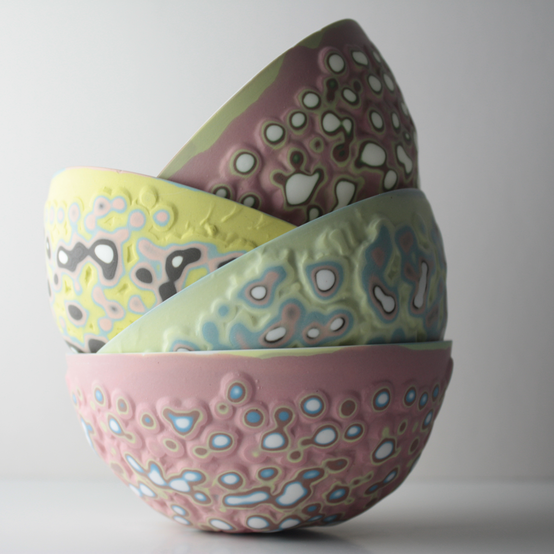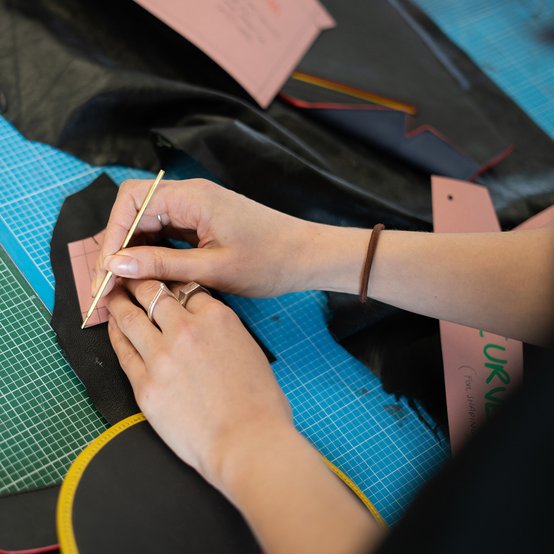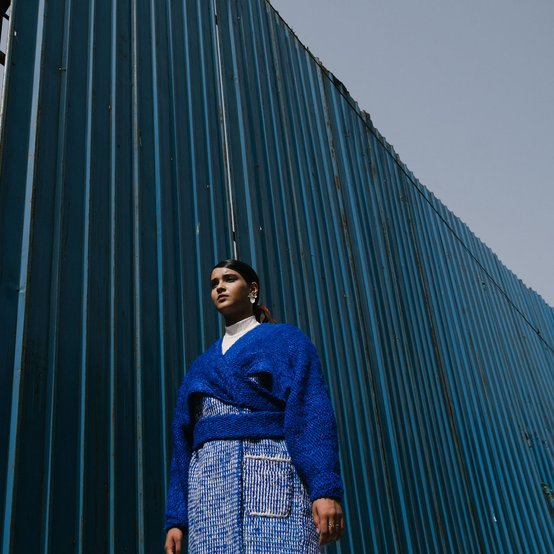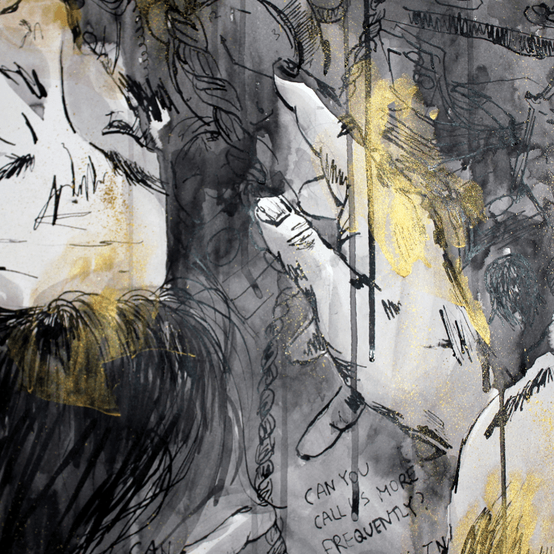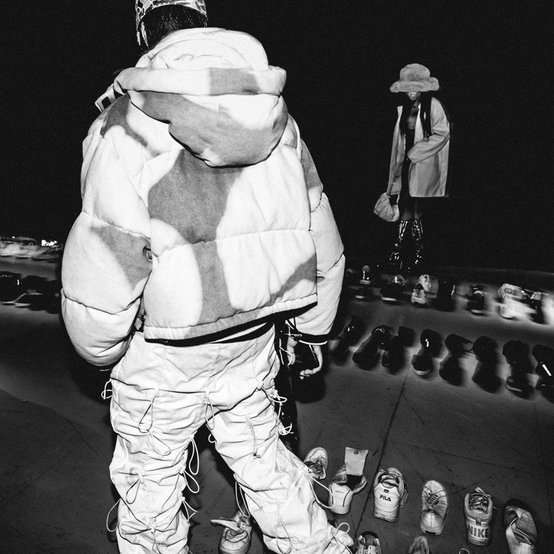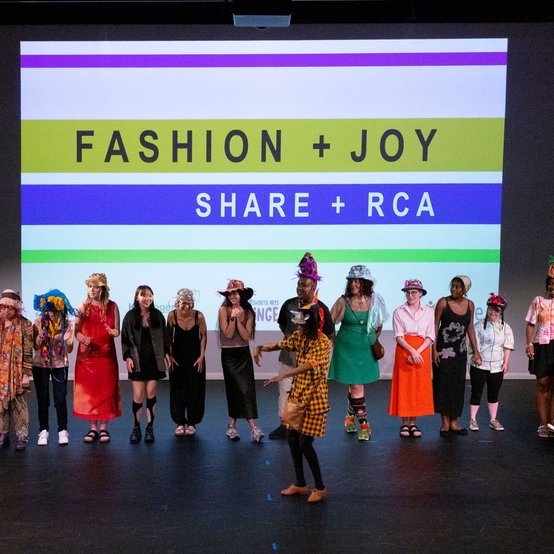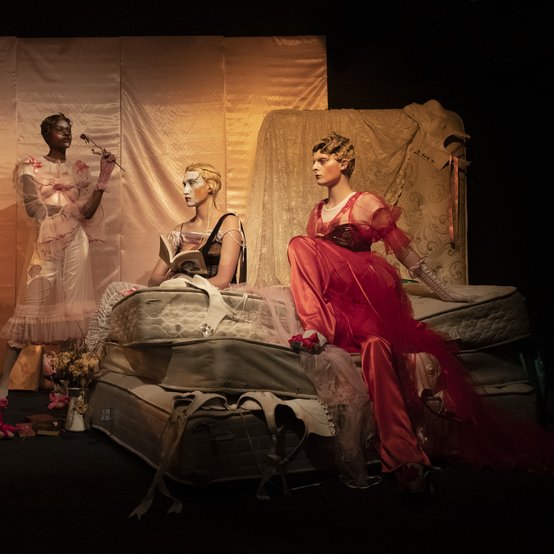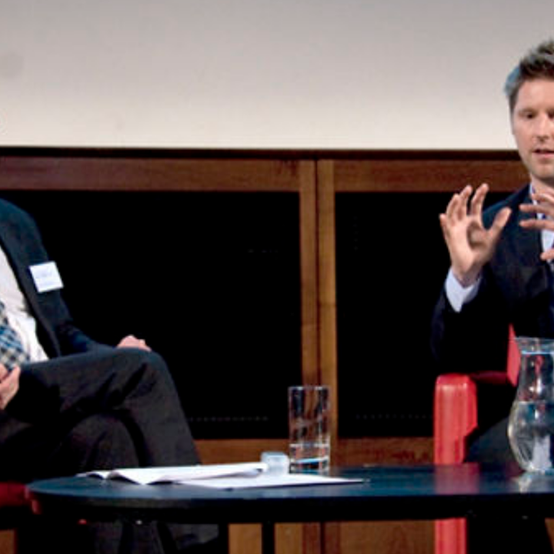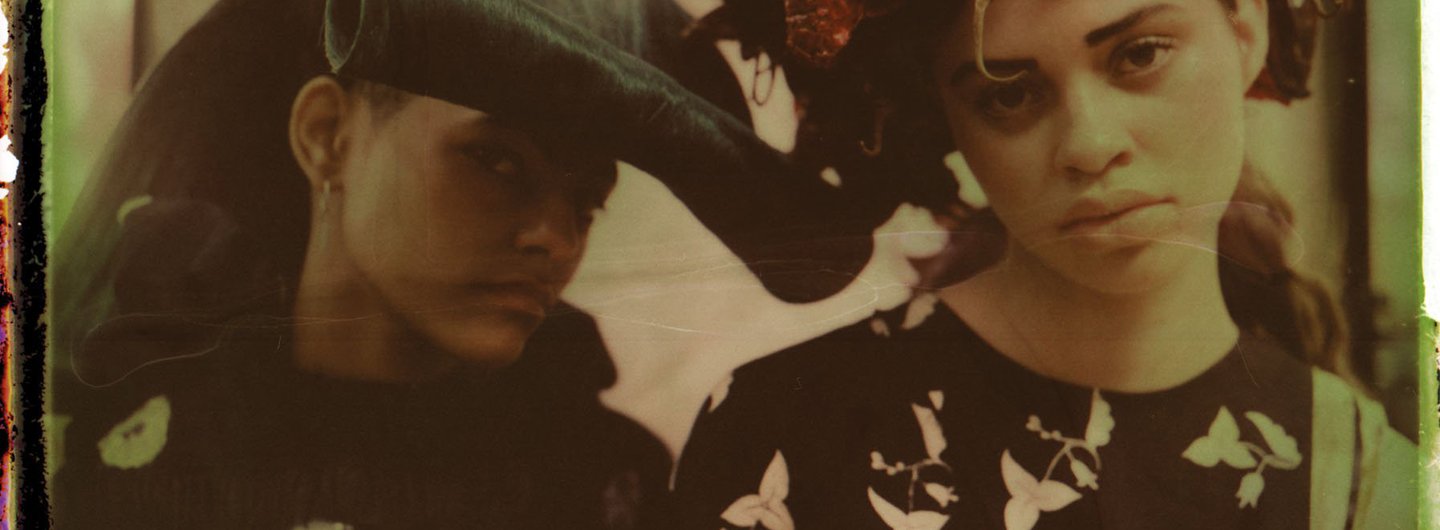
Overview
Relevant and immediate
Key details
- 180 credits
- 1 year / 45 week programme
- Full-time study
School or Centre
Current location
- Kensington
Next open event
- 6 May 2025
- Join next Online Q&A Week
Round 2 application deadline
- 30 Jun 2025
The Fashion MA programme asks for a disruptive critical approach, leading to new aesthetics and responses about the practice and industry of fashion.
Join a Master’s programme looking to reform the dominant fashion paradigm. We shift the focus from making clothes to concerning ourselves with the environment, social responsibility, and geopolitical and economic challenges.
Fashion is designed, articulated, manipulated and simulated in both physical and digital spaces. It is at its best when guided by diversity, inclusivity and cultural awareness. At the RCA, we invite you to examine the systems and structures of fashion. We’re looking for individuals open to new and emerging ways of thinking.
You will have the opportunity to reflect on, discuss and strengthen your authentic identity and help others do the same. You’ll learn to do this with an awareness of how our values are embedded in our outputs.
You’ll have opportunities to engage with peers across platforms throughout your studies. You’ll also participate in the School of Design’s interdisciplinary Grand Challenge to collaboratively develop projects that anticipate and respond to key societal concerns.
Catch the replays from our latest online Open Day.
Gallery
Staff
Facilities
The School of Design is based across our Battersea and Kensington sites.
View all facilitiesStudents have access to the College’s workshops, with traditional facilities for woodworking, metalworking, plastics and resins, including bookable bench spaces. Computer-driven subtractive milling equipment is available, as well as additive rapid prototyping.
Our alumni
Our alumni form an international network of creative individuals who have shaped and continue to shape the world. Click on each name to find out more.
Where will the RCA take you?More details on what you'll study.
Find out what you'll cover in this programme.
What you'll cover
What will I learn?
Fashion is designed, articulated, manipulated, and stimulated in both physical and digital spaces. It aims for a state of change, where you are open to new and emerging thinking and to unlearning. It is also at its best when guided by diversity, inclusivity and cultural awareness. We must perceive systems and structures and express our fashion identities with an awareness of how our values are embedded in our outputs.
This programme creates an environment where you can look to reform the dominant fashion paradigm, focused on making clothes (line-up, to collection, to fashion show), to one that is a response to environmental concerns, social responsibility, geopolitical and economic challenges. We are now at a critical crossroads.
Throughout, you will also have the opportunity to reflect upon, discuss and strengthen your own authentic identity, and help others to do the same.
There are points of intersection where you can engage with peers across platforms. There will also be an opportunity to participate in the School of Design’s interdisciplinary Grand Challenge, which enables you to work collaboratively to develop projects that anticipate and respond to key societal concerns.
How will I learn?
The programme uses the following learning and teaching methods:
- Briefing: a session that presents key information to students.
- Group Tutorials: a meeting between students and a member of staff to review progress.
- Critiques: a group review of student work.
- Independent study: students studying individually and/or collaboratively without supervision.
- Individual tutorials: a one-to-one meeting between a student and a member of staff to review progress.
- Lectures: presentations delivered to an audience of students.
- Orientations: sessions offering students an overview of a service and how to access it.
- Seminars: themed group discussions between a group of students and a member of staff.
- Technical inductions: a session that enables students to use technical facilities safely and responsibly.
- Negotiated technical learning: a scheduled session providing technical support for a specific student project.
- Technical workshops: interactive group sessions that focus on the development of a particular technical process or skill.
- Workshop: interactive group sessions that focus on the development of a particular process or skill.
Programme structure
The programme is delivered across three terms and includes a combination of programme, School and College units.
Term 1
- Change Agent commences with provocations by existing disruptors and advocates of urgent territories who ask you to debate your own values and critical thinking about Fashion. The talks for the Change Agent unit include:
- Waste Lands - identifying local and global understanding of Fashion’s wastelands.
- Inclusion and Accessibility - designing for those with visible and/or invisible disabilities.
- Digital Dignity - debate the economisation of self and the digitized aesthetic self. In parallel to the lectures, there will be a series of seminars based on the talks, where you will be invited to discuss any deeper insights you may have gained, and what text you might choose to read and connect with. This will assist you in establishing your initial questions and research about your MA.
- Change Perspective is a progression from Change Agent where we continue to provoke and challenge existing norms about the Fashion industry.
- Our future embodied experiences across geographical and temporal scales can be studied in a way that connects both the emotional and the practical elements of Fashion, to bridging between our individual identities and our planet.
- The unit looks to reform the dominant fashion paradigm, focused on making clothes (line-up to collection to fashion show) to one that is responsive to environmental concerns, social responsibility, geopolitical and economic challenges. We are now at a critical crossroads.
- These areas are intended to stimulate contemporary thinking. How do we lead in Fashion when we cannot always see the consequences of our decisions? Community work, co-creation led by prototyping through iteration is expected, all informed by discussion and debate.
- This should be seen as emerging work that begins to express your voice as a designer of a future ecology of Fashion design.
Term 2
In Term 2 all School of Design students will participate in the Grand Challenge, School-wide unit. The aim of this unit is to connect and challenge all students in the School through the introduction of a ‘wicked’ design problem that requires a cross disciplinary approach to problem solving which may involve external international partners. This unit and lecture series has been hugely successful in connecting and disrupting disciplines, people, philosophies and approaches to design thinking whilst providing our student body with very unique networking opportunities.
- Advanced Practice gives space to further articulate your unique perspective, system and aesthetic for fashion, that may have emerged during your first term and the units completed so far. It will be a time to identify spaces in the landscape that require new responses, and to consider how fashion might change behaviours.
- In this time, we would ask that you to reflect on your decisions as we live and are being asked to approach fashion and our identities within a culture that is multi-layered, multi-dimensional, globally complex on socio economic levels, in a world that has varying and changing principles. How might we develop new levels of fashion? That leads on a pluralistic level, aware of the ethics of contracts and cultures both in very real ways, as well as the hyper-connected, digitized visions being laid down.
- This might include non-hierarchical thinking, trans & post-humans, all gender identities, inclusivity with an intersectional breadth, debate about the position of non-human agency, taking an open view to economics that includes all and offers alternatives.
Terms 1 & 2
Across Terms 1 and 2, you will participate in AcrossRCA. This unit aims to support you to meet the challenges of a complex, uncertain and changing world by bringing you together to work collaboratively in cross-programme interdisciplinary teams. In your team you will develop a self-initiated themed project, informed by expertise within and beyond the College.
These projects will challenge you to collectively use your intellect and imagination to address key cultural, social, environmental and economic challenges. In doing so, you will develop and reflect on the abilities required to translate knowledge into action, and help demonstrate the contribution that the creative arts can make to our understanding and experience of the world.
Term 3
The Independent Research Project (IRP) is an opportunity for each student to take responsibility for their practice by developing their own brief. Through the programme, you will have been encouraged to experiment with a range of disciplinary and interdisciplinary ideas and practices.
Through focused self-study the IRP enables students to apply that learning to a unique project and body of work. While this should be informed by your studies it should not be seen as fully conclusive; it is an emerging work that is now apparent and unambiguously your own voice as a designer.
Students will be mentored throughout the IRP to help them develop their voice and their project. There will also be opportunities to make connections with peers throughout the IRP. A ‘Final Engagement’, will ask professional experts to critique your choices through a series of talks, post a public exhibition.
This MA is delivered over 45 weeks.
AcrossRCA
AcrossRCA is a compulsory 30-credit unit which is delivered as part of all MA programmes.
Situated at the core of your RCA experience, this ambitious interdisciplinary College-wide unit supports you in responding to the challenges of complex, uncertain and changing physical and digital worlds. Developed in response to student feedback, AcrossRCA creates an exciting opportunity for you to collaborate meaningfully across programmes.
Challenging you to use your imagination and intellect to respond to urgent contemporary themes, this ambitious unit will provide you with the opportunity to:
- make connections across disciplines
- think critically about your creative practice
- develop creative networks within and beyond the College
- generate innovative responses to complex problems
- reflect on how to propose ideas for positive change in local and/or global contexts
AcrossRCA launches with a series of presentations and panel discussions from acclaimed speakers who will introduce the themes and act as inspirational starting points for your collaborative team response.
Delivered online and in-person across two terms, the unit has been designed to complement your disciplinary studies and to provide you with a platform to thrive beyond graduation.
Requirements
What you need to know before you apply
Candidates are selected entirely on merit and applications are welcomed from all over the world. The selection process considers creativity, imagination and innovation as demonstrated in your portfolio, as well as your potential to benefit from the programme and to achieve high MA standards overall.
We want students who wish to articulate new perspectives, develop their imagination and advance an enquiry about their discipline, practice and industry. You’ll be self-motivated, determined critical thinkers and passionate about their discipline, as well as technically curious and independent.
What's needed from you
Portfolio requirements
We are looking for your unique vision. Fashion is a design language that can communicate ideas about identity, including age, race, gender, disabilities, cultural details, class, and activism. Whether working with film, 360 degree digital or a graphic layout, consider everything you choose…
Consider the following before you upload:
- What does the future of fashion need to be?
- How do you choose your materials?
- How do you show the specificity of a body?
- What does your work offer/activate in other people?
Your portfolio should be structured as follows:
- One image that demonstrates your language in design identity
- One video demonstrating your process: how do you consider/view/touch/experience/make/draw. What is your personal intuitive process?
- One video demonstrating how you work with your chosen body: in movement, situation or location that includes garment/artefact.
- Who is your community?
- Design work: include research development showing us your thinking, making and practice.
Personal statement
Please provide a 300-word written personal statement that addresses the following points:
- Introduce yourself, your interests and your motivations for applying to the Royal College of Art, and to this programme in particular.
- Briefly summarise any educational background and professional experience to date that will support your application.
- Tell us what you want to do in the future.
Video requirements
You must submit a video of no more than two minutes as part of the application process.
We want to hear about your values and questions as a designer that are relevant to today's global community.
- Is there a question you feel the Fashion industry needs to respond to?
- What do you feel you offer about identity for our future that looks across gender, faith, race, age, culture, digital, ethics and climate?
English-language requirements
If you are not a national of a majority English-speaking country you will need the equivalent of an IELTS Academic or UKVI score of 6.5 with a 6.0 in the Test of Written English (TWE) and at least 5.5 in other skills. Students achieving a grade of at least 6.0, with a grade of 5.5 in the Test of Written English, may be eligible to take the College’s English for Academic Purposes course to enable them to reach the required standard.
You are exempt from this requirement if you have received a 2.1 degree or above from a university in a majority English-speaking nation within the last five years.
If you need a Student Visa to study at the RCA, you will also need to meet the Home Office’s minimum requirements for entry clearance.
Fees & funding
For this programme
Fees for new students
Fees for September 2025 entry on this programme are outlined below. From 2021 onward, EU students are classified as Overseas for tuition fee purposes.
Home
Overseas and EU
Deposit
New entrants to the College will be required to pay a non-refundable deposit in order to secure their place. This will be offset against the tuition fees.
Home
Overseas and EU
Progression discount
For alumni and students who have completed an RCA Graduate Diploma and progress onto an RCA MA programme, a progression discount of £1,000 is available.
* Total cost is based on the assumption that the programme is completed in the timeframe stated in the programme details. Additional study time may incur additional charges.
Scholarships
Scholarships
The RCA scholarship programme is growing, with hundreds of financial awards planned for the 2025/6 academic year.
For more information and examples of financial awards offered in 2024/25, visit the Scholarships & awards webpage.
You must hold an offer to study on an RCA programme in order to make a scholarship application in Spring 2025. A selection of RCA merit scholarships will also be awarded with programme offers.
We strongly recommend that you apply for your programme as early as possible to stand the best chance of receiving a scholarship. You do not apply directly for individual awards; instead, you will be invited to apply once you have received an offer.
More information
Additional fees
In addition to your programme fees, please be aware that you may incur other additional costs associated with your study during your time at RCA. Additional costs can include purchases and services (without limitation): costs related to the purchase of books, paints, textiles, wood, metal, plastics and/or other materials in connection with your programme, services related to the use of printing and photocopying, lasercutting, 3D printing and CNC. Costs related to attending compulsory field trips, joining student and sport societies, and your Convocation (graduation) ceremony.
If you wish to find out more about what type of additional costs you may incur while studying on your programme, please contact the Head of your Programme to discuss or ask at an online or in person Open Day.
We provide the RCASHOP online, and at our Kensington and Battersea Campuses – this is open to students and staff of the Royal College of Art only to provide paid for materials to support your studies.
We also provide support to our students who require financial assistance whilst studying, including a dedicated Materials Fund.
External funding
There are many funding sources, with some students securing scholarships and others saving money from working. It is impossible to list all the potential funding sources; however, the following information could be useful.
Payments
Tuition fees are due on the first day of the academic year and students are sent an invoice prior to beginning their studies. Payments can be made in advance, on registration or in two instalments.
Start your application
Change your life and be here in 2025. Applications now open.
The Royal College of Art welcomes applicants from all over the world.
Before you begin
Make sure you've read and understood the entrance requirements
Visit the requirements pageCheck you have all the information you need to apply.
Read our application process guideConsider attending an Open Day, or one of our portfolio or application advice sessions.
See upcoming sessionsPlease note, all applications must be submitted by 12 noon on the given deadline.
Ask a question
Get in touch if you’d like to find out more or have any questions.


